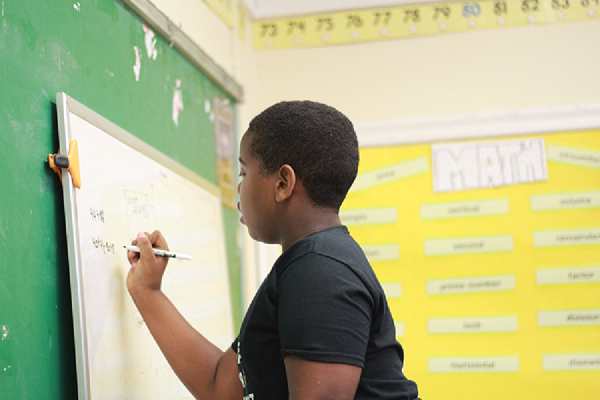“Social workers sit at the juncture between those with too much power and those with not enough.” - Gloria Steinem
In most situations, being a “middleman” isn’t something that any person—or organization—strives to become. But in LEO’s quest to help people move permanently out of poverty, that’s exactly where we want to be. Why? Because we believe that nonprofit service providers are best suited to deliver change and policymakers best positioned to scale change across the country. But first they need to know what works and why. That’s where LEO—and objective research—comes in.
Similarly, our nonprofit partners must rely on their staff to deliver their theories of change to those experiencing poverty. Throughout 90 LEO partner organizations across the United States, these employees have a wide variety of talents and approaches, and sit between well-intentioned donors, managers, and those in need. These integral people in the middle are known broadly as “social workers,” and this is the story of how research has impacted their approach.
This is one of a three-part series about the intersection of research and social work. Read the other stories about Catholic Charities Fort Worth and Santa Clara County.
--

Karim Abouelnaga started Practice Makes Perfect—an extracurricular academic tutoring service for K-12 schools in New York City—when he was just 18. Ten years later, it’s helping children, their parents, and schools to achieve excellence outside of the traditional classroom. A crucial component to raising funds for Practice Makes Perfect (PMP) is Karim’s reliance on research to provide much-needed feedback and guidance for their approach. But what happens when that research contradicts their intuition?
“If I get a report back that said there’s no impact, I'm not gonna freak out,” Karim says, recognizing the common fear among peer institutions. Rather than a setback, he views it as an essential waypoint for potential growth: “If you're committed to improvement...then you’re more open to research.”
Over the past decade, Karim has overseen three independent evaluations of PMPs programming—two of which were conducted by LEO. Understanding the importance of evidence-based programs, in 2018 PMP collaborated with LEO to launch a randomized-controlled trial (RCT) designed to evaluate their summer program. PMP is interested in learning how their program impacts students’ test scores, school attendance, and disciplinary records. LEO is excited to help PMP answer these questions when data is available.
Most recently, in the summer of 2020, PMP and LEO conducted a second RCT to evaluate the impact of a live instruction summer learning program as compared to a program where the same course content is offered asynchronously. Results from this study will provide valuable insight as to the best mode of delivery for summer education programs.
PMP is dedicated to evaluation and optimistic that this approach—though time-consuming—will pay off. That’s the only way Karim sees as fair: relying on quantitative evidence to create better learning outcomes for low-income students.
[RF1]Removed language about a program evaluation suggesting improvements in math and attendance re: this report was conducted by Philliber Research Associates, not LEO. [RF1]So new language reflects only what LEO did. Removing language about another study on classroom size and ideal mentor to student ratio re: This refers to some interns PMP hired this summer. They did some descriptive statistics about their program. (This is all descriptive though, and not done by LEO).
[RF2]Note we don’t have these prelim results yet.